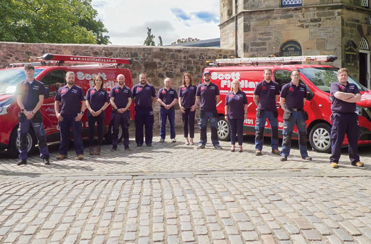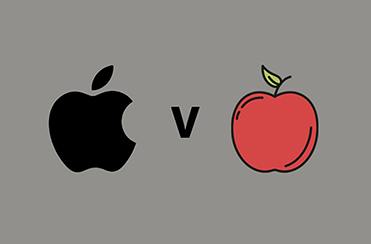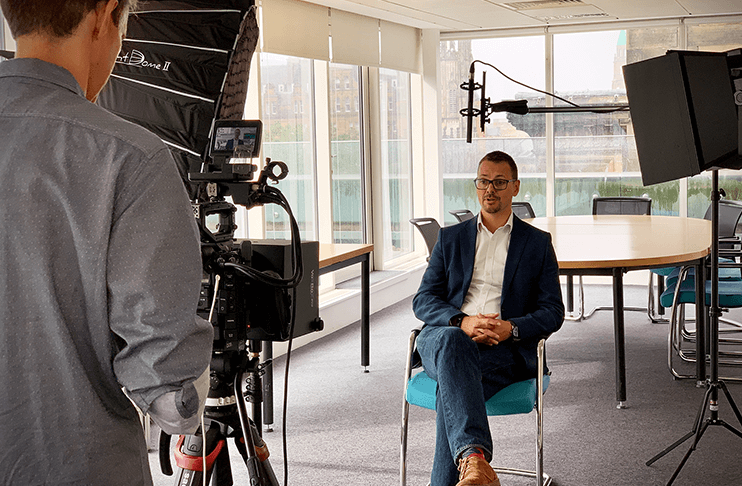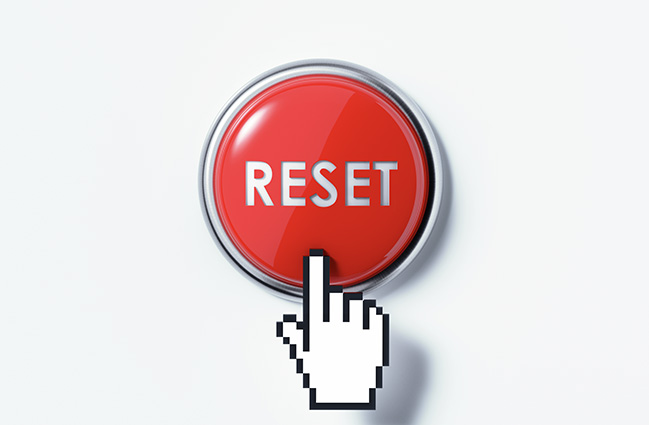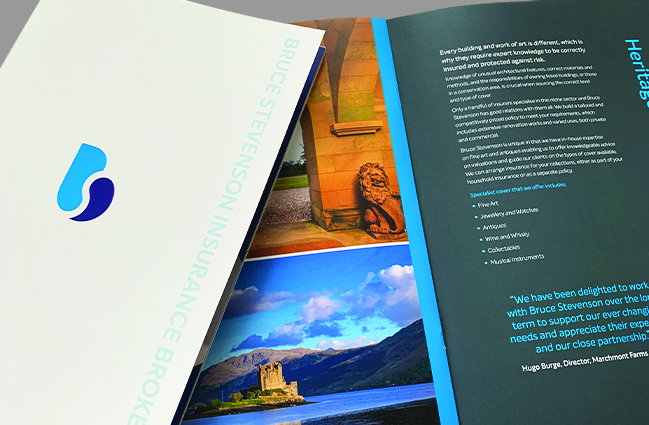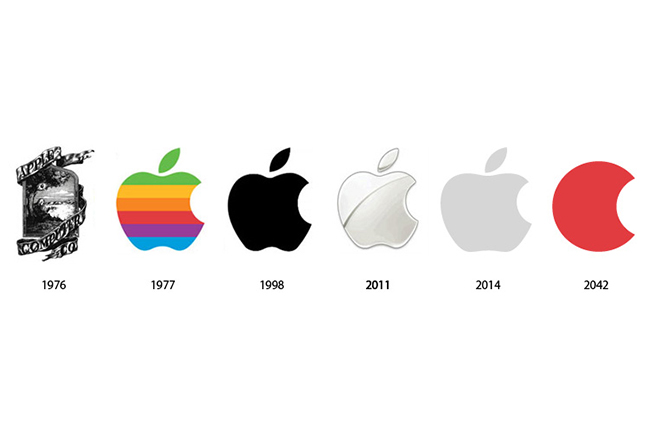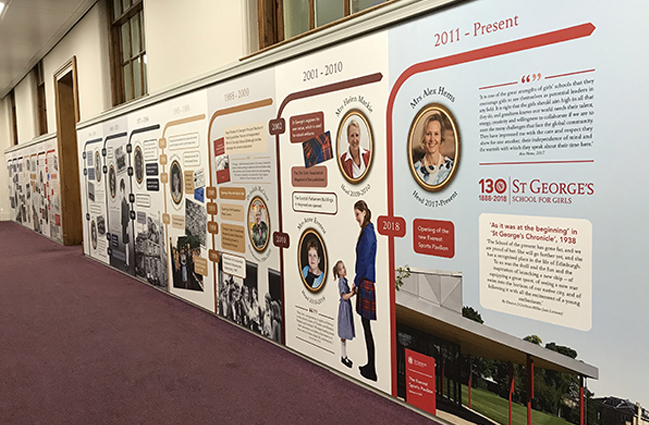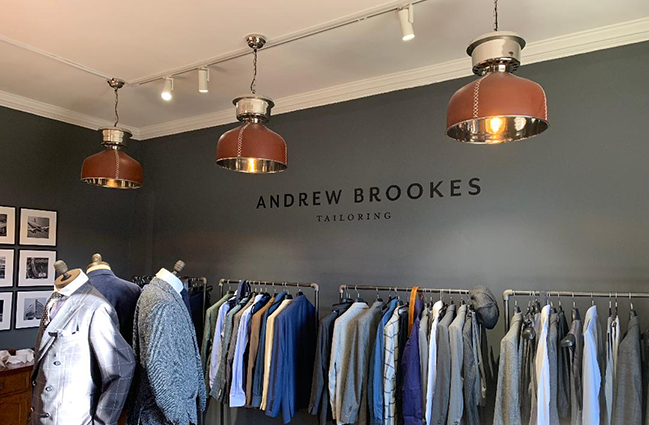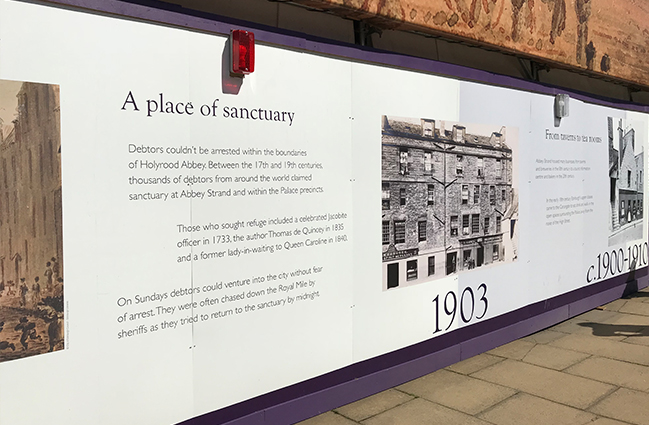The great content debate

Content is king we are always told. Luther Vandross would tell you there’s ‘Never too much’… although maybe he wasn’t actually talking about content. There’s much talk about Google algorithms liking lots of website content but let’s face it, you're more likely to find a unicorn doing a headstand than working out a Google algorithm.
We can’t tell you we have a definitive answer to the great website copy debate but honestly? It’s more than you think.
Is bigger better?
Not to be size-ist, but not really. We’ve all sat in meetings with someone who uses 1000 words when 100 would do – there’s one in every office! The result of doing that is you reduce the value of what you’re actually trying to say. It may well increase your ranking in the short-term but eventually the google algorithm will adapt to compensate for this. Think quality over quantity. If visitors arrive on your site but find that your content isn’t of a particularly high quality, how does that translate into their perception of your brand? Badly. It leaves them with a sense of being ‘duped’ into thinking your content and offering is something it’s not.
Tell me why
Why are people visiting your site? Why do you want them to? Basic questions but ones that need addressed. Firstly, it can often depend on your industry. A photographer for example, is likely to be more image heavy with some blog content. A plumbing merchant is more likely to have detailed content on how to in install their pipes. Knowing your audience and what they need from you is key to ensure they return to you for information, advice and instruction. It gives them a feeling of reassurance that they’re getting the right type of information. E-A-T – Expertise, Authority and Trust – it’s one of the things Google looks for when ranking websites. Nail that, and you’re ensuring your website performs well in the Search Engine Results Pages (SERPs).
Experience is essential
So, we’ve agreed that written content needs to be relevant and interesting. However, creating an experience for your website visitors is what keeps you ahead of the competition. We’re talking videos, graphics, animation, and audio. Many people respond better to visual content rather than written (Instagram anyone?!) so make sure you consider this, especially if you’re trying to explain something visual or complicated.
Take a garden centre for example. You could tell customers how to plant a great rockery in detailed written instructions. But what if you added is a video, showing how to turn the soil, which plants work well in certain soil and where to place them? If customers can see an end result and how to get there, they are far more likely to buy from you and become repeat customers.
For this reason, many instruction manuals now come with images in them, and more and more companies have detailed videos on their website or YouTube channels. Both of these options are far superior to words, and this is why content length is arguably not very important. Your page may only have a hundred words on it, but it might be accompanied by multiple images and an incredible video that provides huge value to your customers.
Additionally, recent studies have shown that pages with images on them tend to rank better. People are more likely to visit websites that have detailed videos and graphics on them instead of plain text.
Remember the basics
There’s no need for basic spelling and grammatical errors. We all have spellcheck. Getting a second pair of eyes to proof-read your content is essential. Again, it comes back to quality. If visitors to your site see basic errors, they’re going to wonder about the quality of your offering. If you can’t be bothered to check copy, what level of customer service are you going to provide? A recent study indicated that people are less likely to convert into paying customers if there are obvious mistakes. We don’t know if Google checks for quality in terms of spelling and grammar but if they don’t now, they’re likely to at some point.
Content Keywords
So, you’ve written your great piece of content. How else can you ensure people are finding it? One word – keywords. Working out which keywords potential customers are searching for makes it much more likely that you will rank for these.
We’re not suggesting you focus solely on SEO but utilise the keyword search software that is out there. Research the keywords that people are using, and you can then optimise your posts, so they rank higher. Look for terms that have a high search volume but aren’t competitive. Google offers a great keyword research tool.
Remember to focus on what it is that the customer is looking for. Again, this all varies by industry and to an extent, what people are looking to spend in terms of the item they’re looking for. This gives you some great insight into potential customers and how to manage them.
Efficient and effective
Again, we come back to quality vs quantity. Don’t focus solely on length, focus on giving value to your customers. If you are determined to write 1500 words but could write better copy in 1000 words. Do the latter. Your customer will prefer that you give them the information they want in a concise manner.
Efficient use of copy shows your reader that you value their time and want to help them get to the answer they are looking for sooner rather than later.
Learn to differentiate between the questions that people are asking and work out when they want a quick answer and when they want more detailed information. This should reassure them that you value their time, but you can still provide them with everything that they are looking for.
Think about it from a customer perspective. Run searches on queries they would use on Google and review other websites that are ranked. Google your company and your competitors. Who ranks higher for your desired search terms? This will help you focus on keywords for your particular industry.
So, does content length actually matter or not?
Like everything in life, you need to strike a balance. Quality and relevant content will always rank well. A combination of shorter and longer articles that are industry relevant will rank well. Focus on word count after you’ve written your article rather than before. This way, you’ll cover everything you need to then you can add and edit as appropriate. You’ll then be creating articles that provide a far better user experience. And if your user finds the content useful, so will Google.
Power of the spoken word
How to use word of mouth to grow your brand.
WOMM, (word of mouth marketing), it is all about influencing discussion about your brand and/or product.
Effective email marketing
Email marketing plays a integral role in your overall marketing strategy. This direct communication tool allows marketers to manage changing customer needs.
Graphic designer vs Canva
The explosion of Canva onto the design scene has led to a slew of people harnessing their inner creativity. Sometimes with not-so-great consequences.
Content continues to be key
Content marketing is a key part of your marketing strategy. When you create and share content online it raises brand awareness of your company. Think of it as a virtual salesperson focussed on persuading a consumer to buy from you.
Video vs static
One of the earliest marketing lessons talks about market ‘saturation’. Usually, market saturation means success. But what about when it comes to digital advertising? In this case saturation has led to digital ads becoming ‘white noise’ or wallpaper to consumers.
Creating customer loyalty
Sound the klaxon! We’ve a new customer!! Everyone loves a new customer. It validates all your hard work when someone chooses your company. It’s a new opportunity to share content and reviews as well as cross selling other products.
Bringing your logo to life
Fun fact for you - history’s first recorded animator is Pygmalion of Greek and Roman mythology, a sculptor who created a figure of a woman so perfect that he fell in love with her and begged Venus to bring her to life. Every day is a school day!
Keep creativity in design
We like to think that everyone has an element of creativity but how it is executed is the challenge. Having a microwave doesn’t make you a chef.
Clients will often have great ideas that are a starting point for a campaign, but a designer’s job is to make that idea come...
Take out the bounce
Time is money so the saying goes. It’s an old phrase but it’s still relevant when we talk about an online presence.
Do you know how long do users stay on your website? Recent stats tell us it’s less than 15 seconds on average.
Less is more
We have long said content is king. That has not changed over the last few years; however, it gets harder to create content that engages with your target audience. Do you continue to churn out content or do you look at getting the most out of what you already have?
Feeling warm inside
Edinburgh’s most trusted plumbing & heating engineers, Scott Findlay approached us earlier this year as they wanted to create a video to let customers know what to expect from their team.
Customer psychology
“There is one more thing – it’s been emotional…” 10 points to those who can name the film that comes from?! *
It’s December folks which means there’s a deluge of Christmas advertising – which actually started right after Halloween.
Marketing in 2022
January. Already. Time seems to be flying in as quickly as marketing trends are evolving.
2020 and 2021 saw brands re-evaluate their activity, ensuring online activity became a priority in order to reach their customers...
Value of video marketing
It started with BetaMax and VHS. Remember them? Fancy machine with a black cassette that you carefully marked with a black marker to make sure no one recorded over your recording. And now we video on our phones and upload to websites. No video rental stores here.
Supplier collaboration
Collaboration - the action of working with someone to produce something.
Synonyms
cooperation • alliance • partnership • participation • combination • association • concert • teamwork • joint effort • working together
Collaboration - key to success
There’s new ‘c’ word this season… Collaboration. From fashion to medicine, customers are realising collaboration is the way forward.
Rather like the important ‘c’s’ when looking at diamonds, collaboration has it’s own ones. They are the basis for any good...
Easter Egg Hunt Competition
Winner of the Luxury Chocolate Easter Egg Announced. Thank you to everyone who entered our Easter Egg Hunt. For those of you that were struggling to find all 6, we can reveal that they were on the following pages...
Key marketing trends in 2021
So we’ve said ‘so long, farewell, auf wiedersehen, goodbye’ to 2020 and we’re now staring down 2021. There has been a sea change in marketing activity, with businesses across the globe embracing digital like never before.
Re-ignite brand passion
Brand love – is that really a thing? Think Coca-Cola vs Pepsi, Android vs Apple. There’s some hardcore loving from some of their customers. But those brands have spent a long time creating the fundamental requirements for a relationship – trust, loyalty and respect.
Designer versus DIY
“A logo? Why do I need to pay a designer to create a logo? It only takes 5 minutes. I can save money and do it myself”
Yikes! We’ve heard this a lot over the years. Just as well we’re not sensitive souls here at Platinum HQ...
MBM Commercial video
The EIE (Engage, Invest, Exploit) virtual conference took place in October this year. As a key sponsor, MBM Commercial is there to help businesses grow. We worked with the team including Managing Partner Stuart Hendry to create a video, discussing the importance, now more than ever...
Return to sender
A 404?! It’s the page your server displays when it can’t find the URL requested by the user. It used to be the stuff of nightmares. We would throw our hand up in horror then re-direct people to the homepage. Surely that’s how we deal with it? Actually no. That’s the opposite of...
Checkpoint Charlie
Launching a website is always an exciting time. You’ve put in all the hard work – now you get to show it off to the world and start receiving visitors.
However, it can also be a stressful time. How do you know that you haven’t forgotten something important?
Clare Blatherwick
With over twenty years in the jewellery business, Clare Blatherwick is one of the most experienced jewellery professionals in Scotland. Before launching her business in 2017, Clare spent 10 years as Head of Jewellery in Scotland for Bonhams, one of the world’s largest auctioneers.
Video killed the radio star
Video production has often been perceived as an expensive marketing communication. However, video content can be created in your living room (and may well be until we get back into office life!). Think about YouTube and podcasting – these are easily created and uploaded.
Briefing for success
Every great project or campaign should start with a great design brief. But this is not always the case. Over the years, we’ve seen some brilliant briefs and some not-so-brilliant briefs. Every project aims for success and by putting the right brief and processes in place at the start, it should...
B2B – Back 2 Business?
B2B – Back 2 Business? But not as we know it. These last few months have taken their toll on industries across the globe. But many businesses have taken the opportunity to take a step back and review, reset and recharge their marketing activity.
Lets Get Fresh
A year is a long time in politics apparently. But it’s also a long time in terms of websites.
If your website is anything over one year old, then it definitely needs refreshed. If it’s over 2-3 years old, it may well need revamped entirely.
Keep on moving
Who remembers Google's logo before 2015? Really? Animation was starting to creep into marketing and in 2015 Google introduced its new animated logo marking the beginning of a shift change in online branding. Since then, there has been a steady increase in the use of animation.
Breathing life into old content
‘Old’. It’s not a particularly positive word. Old, irrelevant, out of date. We’re always looking for newer, better, faster. But what if we stop for a minute and consider ‘old’. When it comes to content, old isn’t always bad. It just needs repurposed and refreshed.
Coming of age
18! That means we’re grown-ups now right? We like to think of it more that we started out as a fledgling business and we have matured and evolved over the last 18 years. It’s been a great journey so far – in fact, we still have our first client that came on board 18 years ago.
Be a boy scout
Well this has been an interesting / challenging / what just happened (delete as appropriate!) few months…
But we are seeing a glimmer of light of what we think is the new normal.
Writing to reach you
Hands up who’s heard of Albert Mehrabian? To be honest, neither had we until we started looking into various types of communication.
Marketing in a crisis
Pandemic. Global crisis. Self-isolation. These are powerful words. We’re in unprecedented times. However, in these challenging times, we are seeing great human spirit and positivity. This is what we need to focus on. Helping each other until we get through this.
The Name of the Game
Don’t panic, we’re not channelling ABBA. Well, not today anyway.
We were recently approached by a new client, looking to change their company name. Ooh that’s a bit risky we hear you gasp. Well yes. And no.
For the love of colour
Blue. It features a lot in all walks of life – eyes, sky, sea, shoes, feelings to name a few. It’s uplifting in a calming way. Your choice of colour is connected to how that colour makes you feel and can impact many of your purchasing decisions, without you even really realising.
Bruce Stevenson Howden
Bruce Stevenson has been one of our longest standing clients and we have evolved the look and feel of the business over the last 8 years.
Having created and implemented a brand refresh in 2018, it was time to update the corporate brochure to reflect the...
Emarketing isn't dead
You’ll know by now that Team PC love a stat – and the bigger the numbers the better. So here goes…
By 2023, there will be an estimated 4.3 billion global email users, according to Statista. That’s a lot of users. It won’t surprise you then, that with that...
Blue Monday
All we’re hearing today is about blue Monday and how it’s the most depressing day of the year. Pah!
Based on ‘cool blue’ being the pantone colour of the year we’ve decided to sack off the connotations of blue Monday being depressing. Here at Platinum HQ...
Smith & Rodger
We were approached by this family run paint and wood finishes company based in Glasgow. The business started out 1877 as a producer of the highest quality of wood finishes. It has since evolved and is also now a commercial paint supplier.
Print isn’t an eco-enemy!
As we head towards 2020, we look to continually evolve the business and embrace best practice. As such we have been looking at our approach to sustainability and our recommendations to clients on ‘environmentally friendly’ projects. Some of our clients have...
DIY SOS for SEO!
We’ve talked about the value of investing in a slick, user friendly website. But looks aren’t everything. Scratch the surface and you may find that underneath, your site isn’t as good as it looks. What you wanted to create was a site that engaged visitors but how do they find you in the first place?
2020 Design predictions
Ooh we love typography! It lifts a brand and gives it a simple but modern look and feel. Using a simple typography in design then lends itself to being decorated with a host of creative elements. Known as artistic typography, this trend is expected to flourish in 2020.
A missed opportunity?
Have pen, will travel. Think about it, how many times have you been given a pen by a supplier or client? Or how many times have you inadvertently picked up a pen and popped it in your pocket after using it? Not in a kleptomaniac sort of a way – but more as it’s an automatic reaction.
Knowledge is of no value
“Knowledge is of no value unless you put it into practice”
Anton Chekhov must have known a thing or two about knowledge graph panels. Or maybe the 19th century was a bit early…
We find that many of our clients aren’t...
If the shoe fits....
You may remember our recent article ‘To print or not to print?’ if you’ve not read it yet, here’s a shameless plug to it. We thought we would follow up to it to discuss if direct marketing in a B2B environment is still relevant.
Hungry like the wolf
Not Duran Duran. But content, a necessary but difficult part of website creation and management. Your website needs it, but how do you get it, who writes it, and how much do you really need?
Passionate about Print
You may have noticed in our last insights article that we shared our love of print. We’ve spent years understanding the process of print and learning more about finishes and stocks. But, for the uninitiated, it can be daunting to try and work out what print will work best for your project.
To Print or not to Print?
You’d be forgiven for thinking that print is a dying industry.
We can all hark back to the days when direct mail became the scourge of marketing. Customers were overwhelmed by the amount of ‘junk mail’ they received through their letterboxes or in...
E-marketing - getting it right
It’s been over 40 years since the first email was sent. No one could have predicted the effect this would have on the way we work. Email marketing exploded in the mid-nineties and it remains one of the most effective ways to engage with, and generate revenue from your customers...
Eggs in one Basket
Easter egg hunts are always fun. Being on the hunt for, or managing, several agencies to work together is definitely not fun.
The advent of digital saw many clients start to work with separate creative, design, advertising, marketing and digital agencies. There has been much...
Your quietest employee
The explosion of websites in the mid-noughties was unlike any other marketing initiative we had seen. At the end of 2018 there were a reported 1.8 billion websites in the world. Of these, less than 200million are active.
Platinum loves…
Here at Platinum HQ there’s a lot of things we love. Cake, a cold beer on a sunny day, more cake.
But we’ve always also been firm believers in loving what we do. For over 16 years we’ve spent time crafting great design and it’s been fantastic.
Half baked? No thanks!
A rather famous brand campaign once said ‘Good things come to those who wait’. But as a generation of time-poor individuals wanting the best results in the shortest time possible, patience isn’t really top of our agenda. It’s a bit like baking a cake for half the required time and expecting...
St George's School
A lot has happened over the last 130 years – not least the creation and evolution of St. Georges School in Edinburgh. From their humble beginnings in Melville Street with only 50 pupils to the present site at Murrayfield with both domestic and international students, the school has...
Andrew Brookes Tailoring
Suits you! We were approached earlier in the year to ask if we would work with Andrew Brookes Tailoring to help raise the profile of the brand in Edinburgh and throughout Scotland. We were lucky enough that they’d seen our work and really liked it.
The Palace of Holyrood House
By Royal appointment (sort of!) The Royal Collection Trust (RCT) planned to refurbish and restore various buildings within the grounds of the Palace of Holyrood House. They needed to ensure there would be minimum disruption and inconvenience to the general public and the Royal Family...
A different perspective
We were approached by The University of Edinburgh to design and produce a series of wall graphics to display within the newly refurbished Estates & Buildings department and the end results were very impressive.
We're going up in the world
Up to the ceiling that is. We were commissioned to help restore the lovely illustrations that surround the ceiling within the Scotch Malt Whisky Society (Vaults, Edinburgh). Unfortunately the beautiful illustrations that had been created by Bob Dewar...
The Value of Design Thinking
Design isn’t just about your logo or how you decorate your office, it’s a way of thinking and allowing your business to thrive, creating new products and developing relationships with new customers.
Creativity for Success:
Too many of us follow the crowd. We stick to the rules. We conform.
Yet, we know that creativity makes the difference between a mediocre business and a great one. The difference between success and failure.










